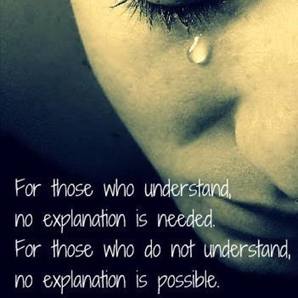
In most healthy relationships there is a balance of give and take. You give love; you get love. There’s equal sharing of support and care. With grief, there is a shift and the relationship becomes imbalanced. This is justifiable and understandable. Nonetheless, it can be a challenge for our loved ones who are sidelined while we work through a very personal struggle.
My family experienced the impact of my grief physically, financially and emotionally.
After my dad passed away I couldn’t bear to be embraced or hugged from anyone, especially my husband and children. Six years later this is difficult and painful for me to write.
I couldn’t understand it at the time, since I am someone who will not hesitate to embrace a complete stranger. Grief is an isolating emotion, and this response to my loved ones perpetuated my feelings of shame and isolation. When I shared all of this with my therapist she said. “It’s because they are not your dad, and your daddy’s hug is the only thing you want.” With that understanding, in time, I was able to work through these feelings and once again crave my family’s embrace.
Death reminds us of the limited amount of time we have on this earth. For me, my grief created a personal quest to find ‘my purpose’. I left a full time job to pursue passions that lived closer to my heart. My husband was not only gracious and generous with my selfish quest, he was encouraging. He was supportive even though this meant he absorbed the bulk of our family’s financial responsibility.
What was supposed to be a transitory adjustment for me, turned into a far longer time frame than he and I had anticipated. We hadn’t anticipated my mom would be diagnosed with terminal cancer only 17 months after my dad passed away. We also hadn’t anticipated the three months of me taking care of my mom would turn into 22 months. We hadn’t anticipated the brief sabbatical from the business I had recently started would turn into a permanent dissolution.
For approximately three years I did not contribute any income to our family, and yet my husband remained gracious and patient. I am sure there were questions and concerns he felt, but because of my fragile state I believe it was difficult for him to clearly express his feelings.
When my mom passed away I had been suffering from grief for more than three years, and it had become somewhat debilitating. I was able to manage my daily tasks, but I was a hollow shell just crossing the easy stuff off my list.
I couldn’t clearly convey to my family how the grief from my father took me down at the knees, and now the death of my mother took the floor out from under me. I felt as though I was living in quicksand. All my energy was expended to survive each day and provide for my family’s basic needs. Every day I exhausted immeasurable amount of effort trying to find the hope that was lost the day my mom took her last breath.
I can’t say for certain how my loved ones felt when I had experienced loss for a second time. There was a big part of me that believed they were done. “Alright already. It’s been three years and we are ready for the old Jill to return.”
The thing about losing two parents back to back, it’s not like the grieving you experience the first time leaves you better able to handle the second death. First of all, the relationship with each parent is different, therefore the experience with grief is different. Secondly, you are already severely handicapped from the loss of the first parent, so you only have half your tools to heal the second time around. Lastly, my parents were my home. No matter where they lived, where I lived or what I was going through, they were my home. They were my place to return when I needed to feel grounded, feel safe and feel loved. With both parents gone, my home was lost.
I needed my parents to help me with my grief, but they couldn’t. I needed my husband and my kids to help me with my grief, but they couldn’t. My family needed me to be me, but I couldn’t.
For this, they had to live without the real Jill for a little while, until she could finally return to them scarred and battered. They needed a level of patience unfathomable to me. When I think about how frustrated I felt they didn’t understand what I was going through, I am reminded how little I understood what they were going through.
I don’t regret the decisions I made. I would do it all again in a heartbeat, but it doesn’t negate the fact the situation was hard on everyone, including my family.
Love is patient. Love is kind. Love is empathetic. Love is family. For my husband, I will be forever grateful the way he has taken care of Austin, Ryanne and I. Because of him I was able to take the time I needed to spend with my mom, and then heal from my grief after both my parents were gone. For my kids, I am grateful they gave me hope, so I could dig my way out of the quicksand.
Tomorrow I will share a special interview I had with my husband in which I learned a little more about his experience sitting on the sidelines while I struggled with my grief.
To my husband and my kids, I will honor your patience and love by continuing to live my life with purpose.

 RSS Feed
RSS Feed